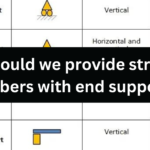Under construction project management, this is the first article to discuss project time management.
The processes required to manage the project’s timely completion are included in project time management.
It is where deadlines are established and met. It all starts with determining what work needs to be done, how it will be done, what resources will be used, and how long it will take. It’s all about developing and controlling that schedule from there.
Table of Contents
Project Time Management Processes
- Plan Schedule Management
- Define Activities
- Sequence Activities
- Estimate Activity resources
- Estimate Activity durations
- Develop Schedule
- Control Schedule
Let’s now discuss the project time management processes in detail.
Plan Schedule Management
Plan Schedule Management is the process of establishing policies, procedures, and documentation for project planning, development, management, execution, and control. The main advantage of this process is that it provides guidance and direction on how to manage the project schedule throughout the project.

The project management plan includes a schedule management plan. Based on the needs of the project, the schedule management plan may be formal or informal, highly detailed or broadly framed, and include appropriate control thresholds. The schedule management plan specifies how schedule deviations will be reported and assessed. A change in the way the schedule is managed may necessitate an update to the schedule management plan. The Development Project Management Plan process heavily relies on the schedule management plan.

Inputs required to plan schedule management
- Project Management Plan
The project management plan includes, but is not limited to, the following information used to develop the schedule management plan:
Scope baseline: The scope baseline contains the project scope statement as well as the work breakdown structure (WBS) details used for defining activities, estimating duration, and managing schedules.
Other information: The project management plan’s cost, risk, and communication decisions are used to develop the schedule.
- Project charter
- The project charter defines the summary milestone schedule and project approval requirements that will influence project schedule management.
- The project charter is the formal document that authorizes a project.
- The project charter delegated authority to the project manager to apply organizational resources to project activities.
- The project charter is issued by an external project initiator or sponsor at a level appropriate for funding the project.

- Enterprise Environmental Factors
The following enterprise environmental factors influence the plan-schedule management process:
- Schedule management can be influenced by organizational culture and structure
- Schedule planning may be influenced by resource availability and skills
- The scheduling tool and alternative scheduling options that are provided by project management software
- Commercial databases that track and publish published commercial information, such as resource productivity information
- Work authorization systems in organizations
- organizational Process Assets
The following organizational process assets have an impact on the plan-schedule management process:
- Tools for monitoring and reporting will be used
- Information from the past
- Tools for controlling your schedule
- Existing schedule control policies, procedures, and guidelines, both formal and informal
- Templates
- Project completion guidelines
- Change management procedures; and
- Procedures for risk control, including risk categories, probability definition and impact, and a probability and impact matrix
Tools and techniques used to plan schedule management
- Expert Judgement
Expert judgment supported by historical data offers insightful information about the environment and knowledge from previous related projects. Expert judgment can also advise on how to resolve discrepancies between methods and whether to combine them.
The schedule management plan should be created using judgment based on expertise in an application area, knowledge area, discipline, industry, etc., as appropriate for the activity being performed.
- Analytical techniques
The plan-schedule management process may include selecting strategic options for estimating and scheduling the project, such as scheduling methodology, scheduling tools and techniques, estimating approaches and formats, and project management software. The schedule management plan may also include methods for accelerating or crashing the project schedule, such as concurrent work. These decisions, like other schedule decisions affecting the project, may have an impact on project risks.
The scheduling techniques used in these decisions may be influenced by organizational policies and procedures. Rolling wave planning, leads and lags, alternative analysis, and methods for reviewing schedule performance are examples of techniques.
- Meetings
To develop the schedule management plan, project teams may hold planning meetings.
The project manager, the project sponsor, selected project team members, selected stakeholders, anyone with responsibility for schedule planning or execution, and others as needed may attend these meetings.
Outputs of planning schedule management
A component of the project management plan that establishes the criteria and activities for developing, monitoring, and controlling the schedule Based on the needs of the project, the schedule management plan can be formal or informal, highly detailed or broadly framed, and include appropriate control thresholds.
The following can be set up through the schedule management plan:
- Development of the project schedule model: The scheduling methodology and scheduling tool to be used in the development of the project schedule model are specified.
- Level of accuracy: The acceptable range for determining realistic activity duration estimates is specified, and an amount for contingencies may be included.
- Units of measurement: For each resource, a unit of measurement (such as staff hours, staff days, or weeks for time measurements or meters, liters, tons, kilometers, or cubic yards for quantity measurements) is defined.
- Organizational Procedure Links: The work breakdown structure serves as the framework for the schedule management plan, ensuring consistency between estimates and resulting schedules.
- Project schedule model upkeep: The process for updating the status and recording progress of the project in the schedule model during project execution is defined.
- Control thresholds: For monitoring schedule performance, variance thresholds can be specified to indicate an agreed-upon amount of variation to be allowed before taking action.
- Thresholds are typically expressed as percentage deviations from the baseline plan’s parameters.
- Earned value management (EVM) rules or other physical measurement rules for performance measurement are established. For example, the schedule management plan could state:
- Rules for determining percentage completion,
- Control accounts, against which progress and schedule management will be measured,
- Earned value measurement techniques (for example, baselines, fixed-formula, percent complete, and so on) will be used (for more specific information, refer to the Practice Standard for Earned Value Management).
- Measurements of schedule performance, such as schedule variance (SV) and schedule performance index (SPI), are used to assess the magnitude of variation from the original schedule baseline.
- Formats for reporting: The formats and frequency of the various schedule reports are defined.
- Process descriptions: Each of the schedule management processes is described in detail.
The rest of the time management processes will be discussed in the coming articles in the time management series.
Related: What’s the difference between LCA, LCI, LCIA, and LCC?











